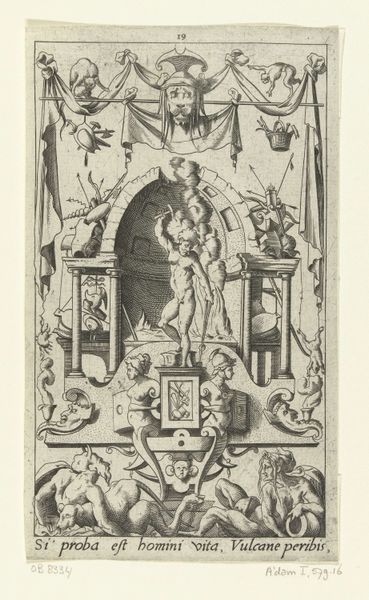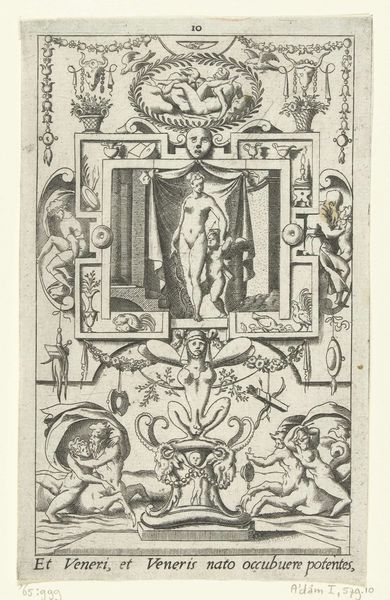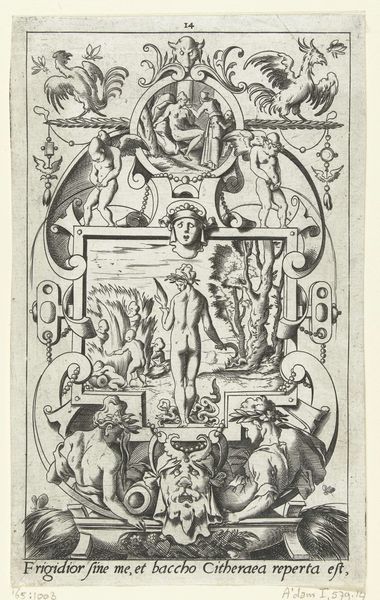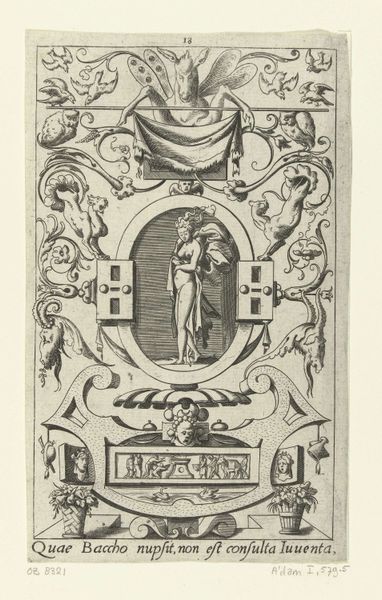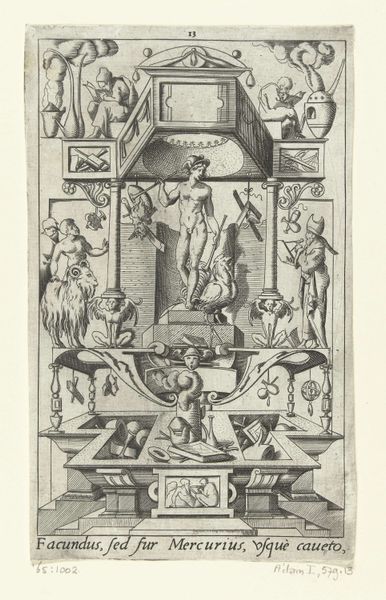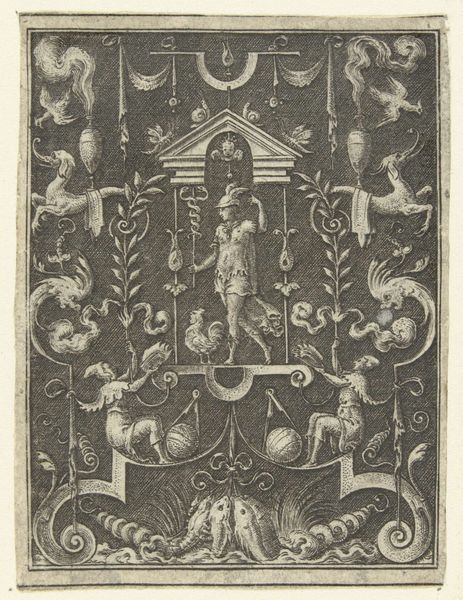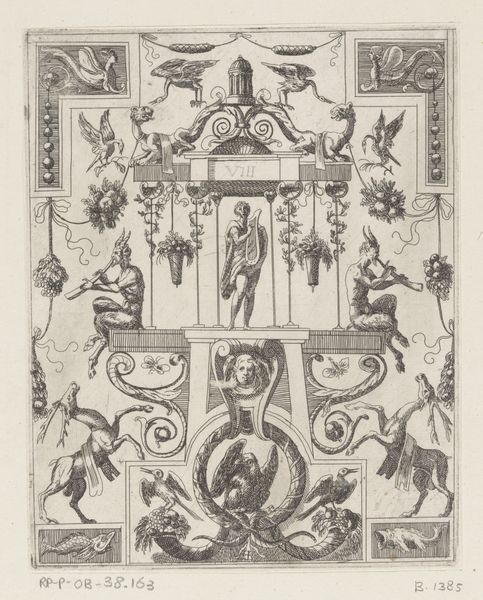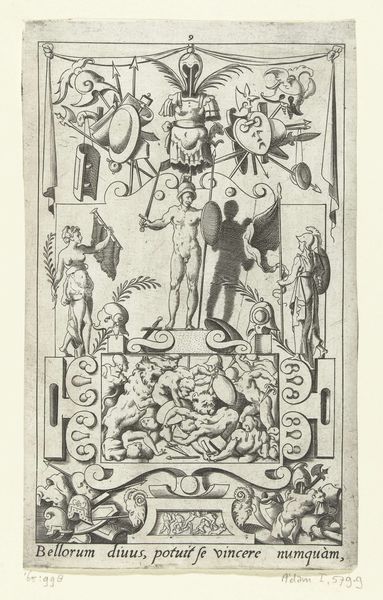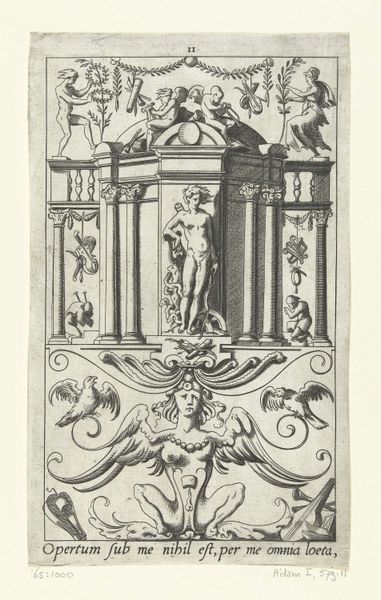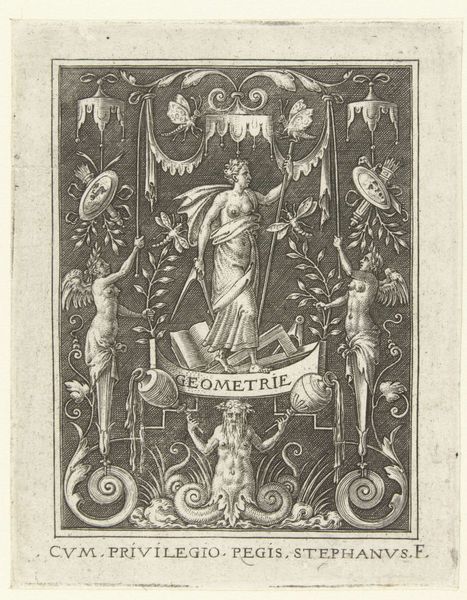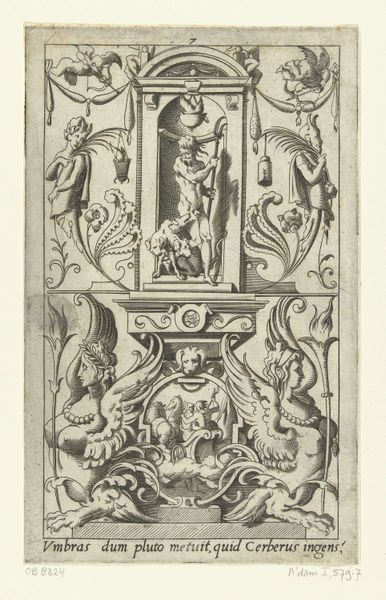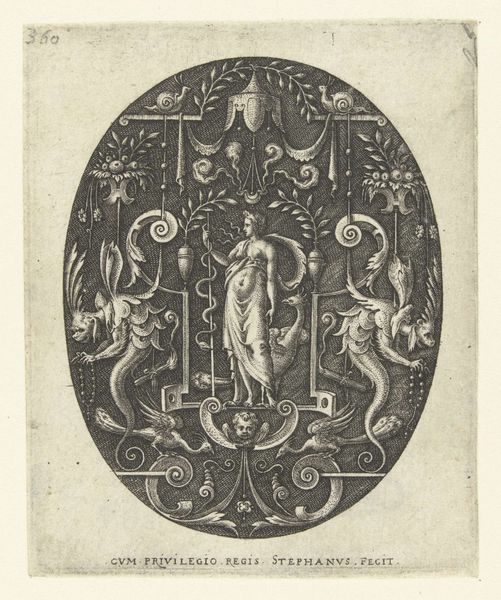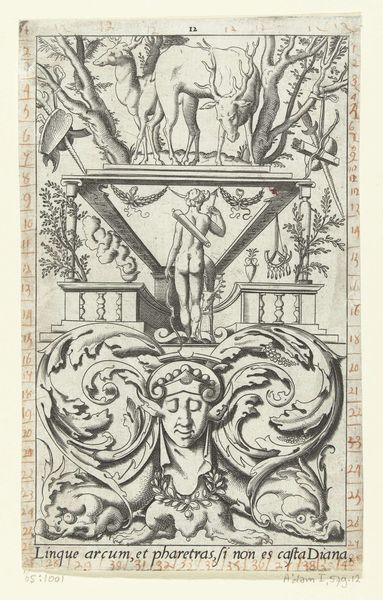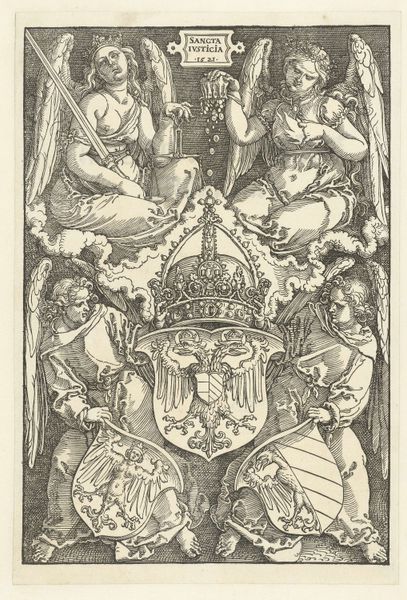
print, engraving
#
allegory
#
pen drawing
# print
#
pen illustration
#
old engraving style
#
mannerism
#
figuration
#
ink line art
#
11_renaissance
#
pen-ink sketch
#
line
#
pen work
#
history-painting
#
engraving
Dimensions: height 174 mm, width 108 mm
Copyright: Rijks Museum: Open Domain
René Boyvin engraved this image of Proserpina, now at the Rijksmuseum, teeming with classical symbols and motifs. The central figure of Proserpina is framed by a classical temple structure, flanked by hybrid creatures: part human, part animal, drawn from ancient mythologies. Consider the sphinxes perched atop the temple. These composite beings, with the body of a lion and the head of a human, originated in ancient Egypt and later appeared in Greek mythology. They symbolize wisdom and guardianship, often posing riddles to those who approach. Here, they reflect the enduring fascination with classical antiquity during the Renaissance, a period when artists and scholars sought to revive the art and thought of ancient Greece and Rome. The presence of such figures speaks to our collective memory. These images resurface across centuries, evolving yet retaining echoes of their original power. Such persistence reminds us that art is not created in isolation, but rather through a complex interplay of cultural memory and adaptation.
Comments
No comments
Be the first to comment and join the conversation on the ultimate creative platform.
